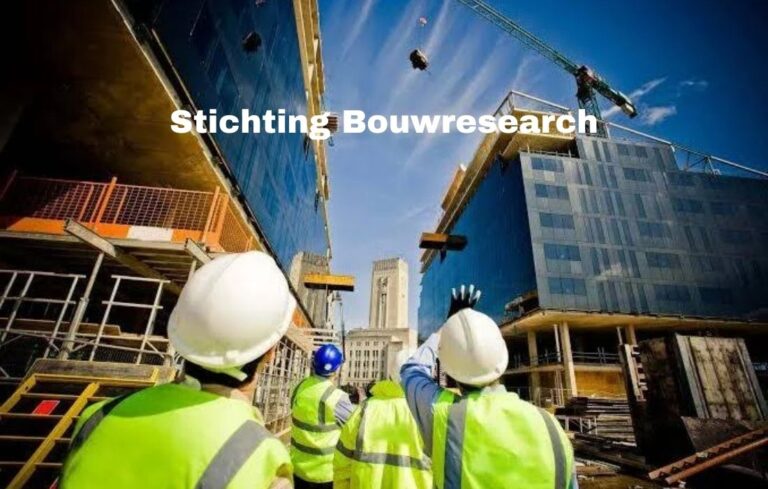Stichting Bouwresearch (SBR) is a beacon of innovation in the Dutch construction industry, dedicated to integrating sustainability with cutting-edge building practices. This article explores how SBR not only shapes the building standards in the Netherlands but also fosters global advancements in construction technology. Through its rigorous research and proactive initiatives, SBR ensures the industry is building smarter, safer, and more sustainably for the future.
Overview of Stichting Bouwresearch
Stichting Bouwresearch is an influential organization in the field of construction research, focusing on enhancing the efficiency, sustainability, and safety of building practices. Located in the Netherlands, SBR serves as a pivotal point of collaboration among engineers, architects, contractors, and policymakers.
Historical Background and Evolution
Founded several decades ago, Stichting Bouwresearch was established with the vision to bridge the gap between construction research and practical application. Over the years, it has been instrumental in pioneering research that challenges conventional construction methodologies and introduces sustainable practices that have set new standards in the industry, both nationally and internationally.
Core Objectives and Mission
The core mission of SBR is to promote and develop innovative and sustainable construction techniques that enhance building quality and safety. The foundation aims to:
- Drive research and innovation in building processes and materials.
- Support the industry in adopting environmentally friendly practices.
- Raise the standards of construction to ensure durability and safety.
Research and Development Initiatives
SBR’s commitment to research is evident in its numerous projects that cover various aspects of construction, including material sustainability, energy efficiency, and architectural innovation. These projects not only contribute to the scientific community but also have practical implications that help in reducing the carbon footprint of buildings and enhancing their energy efficiency.
Impact on Construction Standards and Regulations
Through its comprehensive research, SBR has significantly influenced construction standards and regulations. The guidelines developed by SBR are often adopted by regulatory bodies and have become benchmarks for quality and sustainability in construction practices. These standards ensure that new buildings are safe, efficient, and environmentally responsible.
Case Studies: Real-World Applications of SBR Insights
Urban Development Projects
SBR has played a critical role in several urban development projects where its research has guided the integration of green technologies and smart building practices. These projects have transformed urban landscapes, making them more sustainable and livable.
Residential and Commercial Building Projects
In residential and commercial construction, SBR’s guidelines have led to the development of buildings that are not only energy-efficient but also offer better living and working environments. These buildings typically feature innovative use of materials and energy systems that reduce their environmental impact.
Retrofitting and Renovation of Old Buildings
SBR also focuses on the retrofitting and renovation of existing buildings to meet modern standards of energy efficiency and sustainability. This not only helps in preserving historical architecture but also ensures that older structures are safe and economically viable.
Collaborations and Partnerships
Stichting Bouwresearch collaborates with universities, technological institutes, and industry leaders to foster innovation. These partnerships facilitate a multidisciplinary approach to research and problem-solving in construction, ensuring that the findings and technologies developed by SBR are applicable and beneficial across the industry.
Challenges in Modern Construction Practices
Resistance to Change
One of the biggest challenges SBR faces is the inherent resistance within the construction industry to adopt new practices and technologies. This resistance often stems from the uncertainty and risk associated with changing long-established methods.
High Costs of Implementation
The initial cost of implementing new technologies and materials can be prohibitively high. While these costs are often offset by the long-term savings and benefits, they present a significant barrier to immediate adoption.
Solutions to Overcome Challenges in Construction Innovation
Education and Awareness Campaigns
SBR actively works to educate the construction industry about the benefits of innovative and sustainable practices through workshops, seminars, and publications.
Government Incentives and Subsidies
SBR advocates for government incentives that can help reduce the financial burden on companies looking to adopt new technologies. These incentives make it economically viable for businesses to invest in innovation.
Demonstrating Long-Term Cost Savings
By highlighting the long-term cost benefits of sustainable construction, SBR helps companies see the value in upfront investment. These benefits are crucial in changing industry perceptions and practices.
The Role of Stichting Bouwresearch in the Future of Construction
Looking ahead, SBR is set to continue its leadership in the construction industry by driving further innovations in smart and sustainable building practices. As the industry evolves, SBR’s role in shaping future construction technologies and methodologies will be pivotal, particularly as global environmental concerns become more pressing.
Conclusion
Stichting Bouwresearch is more than just a research entity; it is a driving force behind the transformation of the construction industry in the Netherlands and beyond. Through its dedication to innovation and sustainability, SBR is helping to build a safer, more sustainable future.
Frequently Asked Questions (FAQs)
What is the primary goal of Stichting Bouwresearch?
The primary goal of SBR is to advance innovation, sustainability, and safety in the construction industry through research and knowledge dissemination.
How does Stichting Bouwresearch contribute to sustainable construction?
SBR promotes the use of eco-friendly materials and processes that reduce the environmental impact of building projects.
What types of construction projects benefit from SBR’s research?
SBR’s guidelines and research benefit a wide range of projects, including urban developments, residential buildings, commercial spaces, and retrofitting of old structures.
What challenges does Stichting Bouwresearch face?
Challenges include resistance to new construction techniques and the high costs of adopting innovative materials and technologies.
How can construction companies implement SBR’s recommendations?
Companies can integrate SBR’s findings through training programs, by accessing research publications, and by collaborating with other industry stakeholders.


